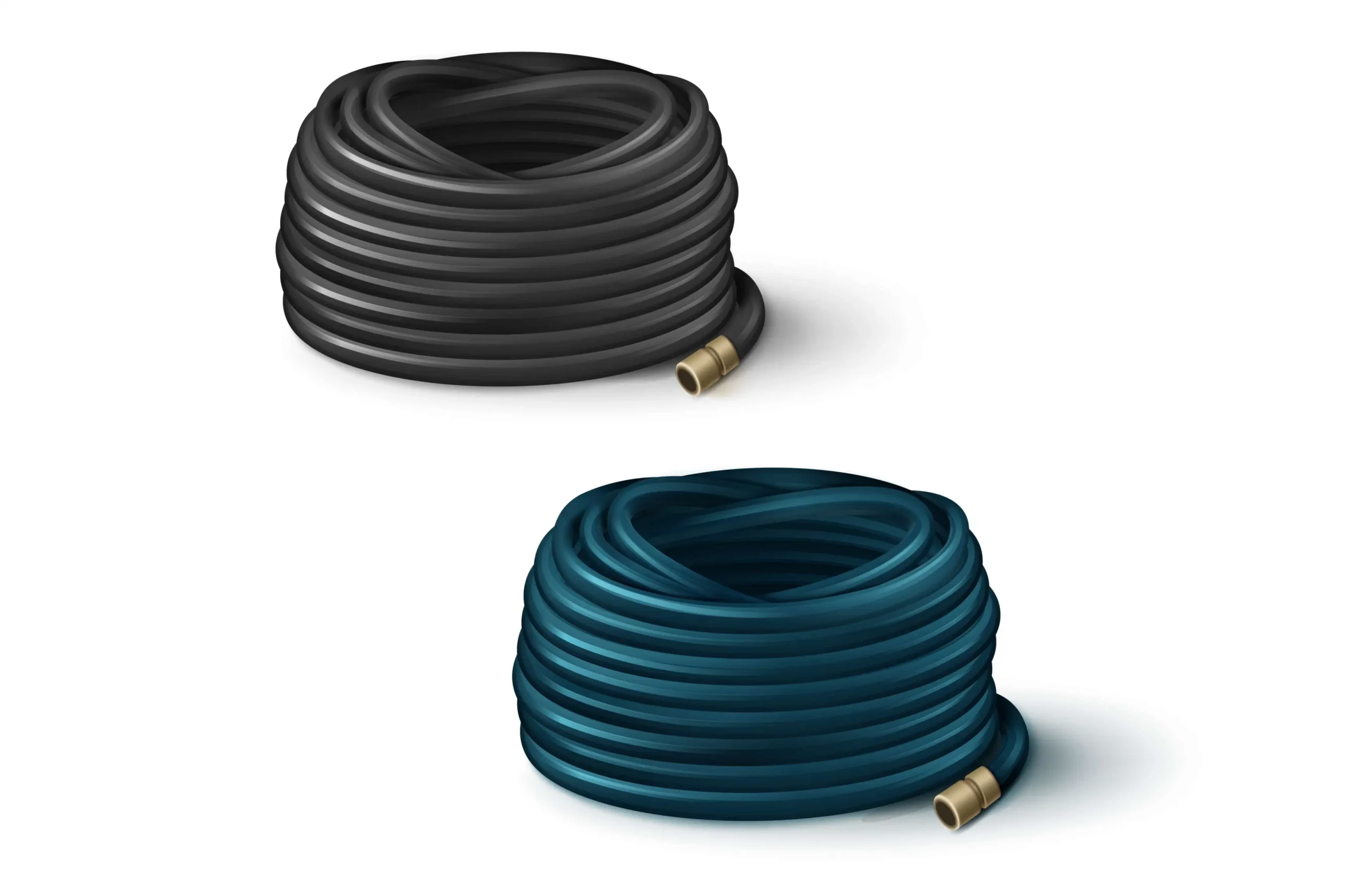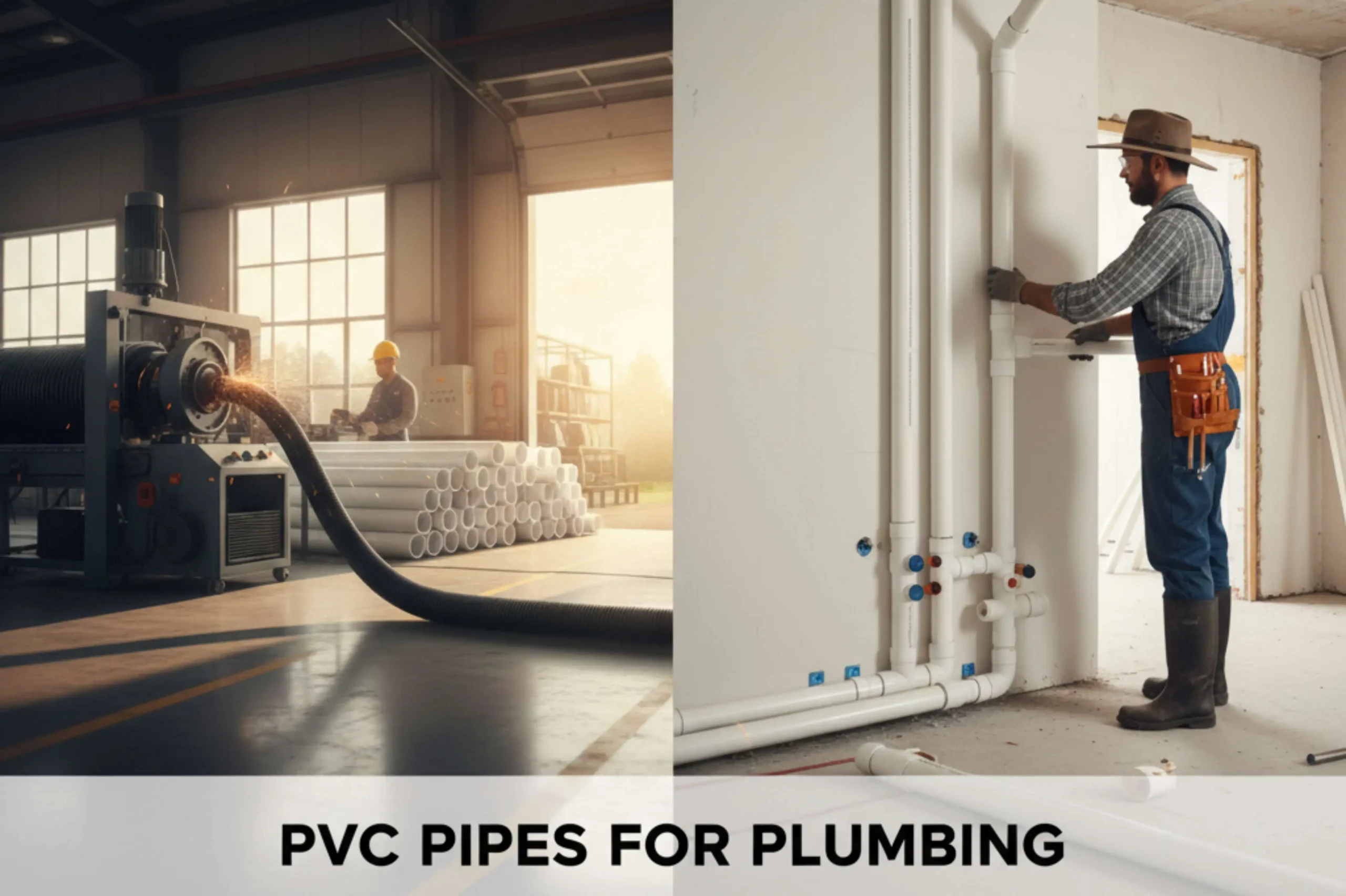Water is crucial when it comes to agriculture. The hose pipe that’s used whether for irrigating crops or cleaning equipment, make a tremendous difference. Hence, it is important to choose a flexible hose pipe that’s strong and reliable. A weak, leaky, or stiff hose pipe can cost you crop yield and time. Investing in Mahavir Group’s PVC flexible hose pipe ensures value for your money.
Check out our 1000 litre pani ki tanki price:
WHAT MAKES OUR HOSE PIPE STRONG, RELIABLE, & FLEXIBLE?
Table of Contents
ToggleThe following aspects detail the reasons.
STRONG: Able to withstand
- Internal pressure (water pressure, surge, etc).
- External abrasion.
- UV exposure.
- Weather extremes.
- Rough farm handling.
RELIABLE: Consistent performance over time. This means no leaks, burst failures, or deterioration. On the contrary, it maintains integrity even when farm terrain or weather is harsh.
FLEXIBILE: Helps reduce labor effort, installation time, and risk of damage like cracks or kinks. Additionally, flexibility ensures the hose pipes are
- Easy to bend;
- Maneuver;
- Uncoil;
- Wrap around obstacles;
- Move across fields; and
- Adapt to different farm layouts.
Ultimately, at Mahavir Group, the goal is to balance the above qualities so that farmers get hose pipes that truly deliver.
THE JOURNEY FROM OUR FACTORY TO YOUR FARM
The following tells the story of Mahavir Group’s hose pipe journey from factory to your farm.
FROM FACTORY: MATERIALS, DESIGN, & MANUFACTURING
The hose pipe’s journey starts from here, that is, our factory. The following critical steps embed strength, reliability, and flexibility right from hose pipe’s production.
MATERIAL SELECTION
- HIGH-QUALITY RAW COMPOUNDS: Premium materials are used. Like for instance, thermoplastic, rubber, synthetic polymers, or reinforced PVC-that offer under temperature fluctuations, strong UV and chemical resistance, and durability.
- REINFORCEMENT LAYERS: Reinforcement like braided polyester yarn, steel wire, or high-tension synthetic fibers is built for many hose pipes, especially those for heavy-duty agricultural use. These provide protection against external damage and burst pressure.
- COATINGS & ADDITIVES: UV stabilizers, anti-oxidants, anti-ozone materials, and abrasion-resistant outer covers, help hoses last longer. Even when they are used under the sun, heat or dust; or dragged over rough surfaces.
HOSE DESIGN & CONSTRUCTION
- MULTI-LAYERED CONSTRUCTION: Inner tube, reinforcement, outer cover. Each of which play a vital role, providing strength and protection.
- FLEXIBLE CORES & LAYFLAT DESIGNS: Some hoses are designed flat; like Layflat hose. This makes them lighter; more flexible; and easier to store and deploy.
- LOW BENDING RADIUS & NO OR MINIMAL KINKS: Good design ensures the hose pipe can without damage be bent close to certain radius. Composite hoses often perform well on this metric.
TESTING, QUALITY CONTROL, & SPECIFICATIONS
- BURST PRESSURE TESTS: Ensure hose pipes can handle expected water pressure.
- ABRASION, UV, CHEMICAL EXPOSURE TESTS: Expose samples to harsh conditions. This helps to find out how they perform under the conditions.
- CONSISTENCY CHECKS: Wall thickness, diameter, and flexibility-all mist be within tolerance level.
From the time, each hose pipe is manufactured and tested; it’s ensured it stands up to expectations of strong, reliable, and flexible hose pipe.
ON THE ROAD: TRANSPORT, HANDLING, AND DELIVERY
The journey of hose pipe from factory to farm matters.
This requires:
- Secure packing. They help avoid damage during transport.
- Proper storage in warehouses. That’s away from direct sunlight, chemicals, and excessive heat or cold.
- Transportation that avoids heavy impact or compressed stacking.
An efficient ‘factory-to-farm’ chain ensures the hose pipe arrives at the farm gate in proper condition.
ON YOUR FARM: CHOOSING THE RIGHT HOSE PIPE
Once a hose pipe arrives at your farm, it’s up to you to select for your requirement, the right hose pipe model that’s strong, reliable, and flexible. Here’s what you need to consider extracting maximum benefits.
| USE CASE | KEY FEATURES TO LOOK FOR |
|---|---|
| Irrigation (Field, Drip, Flood) | Layflat hose, high-burst pressure, UV, abrasion resistance, & ability to cover large lengths without many joints |
| Water transfer (from wells, tanks, and rivers) | Flexible suction hose, kink resistance, & interior smoothness to reduce friction losses. |
| Fertilizer or chemical application | Material chemical compatibility, interior lining that won’t degrade, strong fittings, and secure couplings. |
| Clean-up, washing, and diary operations. | Flexibility, easy handling, non-reactive materials, and ability to handle detergents. |
CHOOSING DIAMETER, LENGTH, & FITTINGS
- DIAMETER: Affects flow rate. Too small a diameter results in waste of energy and slowing of delivery. Likewise, too big a diameter could be necessarily heavy and expensive.
- LENGTH: Should minimize joints.
- FITTINGS & COUPLINGS: Brass, stainless steel, or tough plastic. They should be properly sealed. Additionally, good ends make hose pipes more reliable.
USE AND MAINTENANCE
The best of hose pipes degrade when not used properly. The following details practices to preserve hose pipe’s attributes.
HANDLING & STORAGE
- Roll or coil properly after use. Avoid dragging heavy hoses across rocks, barbed wire, or sharp corners.
- Store hose pipes out of harsh sunlight glare. Sunlight (UV) degrades the pipe’s outer layers.
- Drain hoses in cold water before storage. However, freezing water can damage the pipe’s internal structure.
USAGE BEST PRACTICES
- Avoid sharp bends, kinks. Use hose guides or supports if you want to curve around objects.
- Avoid exceeding recommended pressure ratings. Else pressure surges can badly damage hoses.
- Use proper fittings. Avoid mismatched or worn connectors, Leaks often start there.
CLEANING & INSPECTION
- Clean hose pipe’s interior if used with fertilizers or chemicals. This helps prevent buildup or corrosion.
- Regularly inspect the hose pipe for cracks, bulges, or leaks.
- Replace hoses or parts at first sign of serious damage. Else they can get badly damaged further.
CONCLUSION
In farming, every drop of water counts. Every minute saved matters and every component you count on should be built strong and tough. From factory to your farm, Mahavir Group remains strongly committed to deliver strong, reliable, and flexible hose pipe. This way, they can seamlessly integrate into your farming operations. Ultimately, they help to reduce hassles while ensuring the best crop yields. Investing in Mahavir Group’s PVC flexible hose pipe means good investment. You’re buying a product that guarantees strong performance and longevity.
Check out our pani tanki 500 liter price:
FAQs
Q. Are your hose pipes flexible? Do they cater to large-scale agricultural use?
- A. Yes. Our hose pipes are extremely flexible. They maintain excellent flexibility even in cold weather conditions or under pressure. This allows easy movement around your farm without tangling.
Q. Can your hose pipes be used with sprinklers or irrigation systems?
- A. Yes. Our strong, reliable, and flexible hose pipe is compatible with most farm irrigation systems. This includes strip and sprinkler systems. Their uniform inner diameter ensures consistent flow of water across your farm field.
Q. What kind of flexible hose pipes for agricultural use do you offer?
- A. We offer a range of flexible hose pipes. They are designed to cater to varied farming needs. This includes PVC Flexible Hose Pipe; Stainless Steel Flexible Hose Pipe; and Flexible Garden Hose Pipe. Each is designed for durability and performance. They can efficiently handle irrigation, and other farm applications.
Q. Can I get a flexible hose pipe in larger sizes? Like say, 4 inch diameter?
- A. Yes, you can. We make flexible hose pipe in varied diameters. This includes popular flexible hose pipe 4 inch size. This is widely used to facilitate high flow of water in large-scale irrigation systems and farm machinery.
Q. Can I use for garden and farm use your PVC flexible hose pipes?
- A. Yes. They are lightweight and flexible. They also resist wear and tear. This makes them ideal for garden watering and farm irrigation.
Q. Do you offer for your flexible hose pipe, customized lengths and fittings?
- A. Yes, we do offer. As among the most trusted PVC flexible hose pipe manufacturers in India, we offer for length, diameter, and fittings, customized options. This ensures the hose pipe fits your farming needs perfectly.
Q. What is your flexible hose pipe price range?
- A. Our flexible hose pipe price varies. This depends on the material, diameter, and length. Our pricing is generally competitive. There is no compromise on quality.








